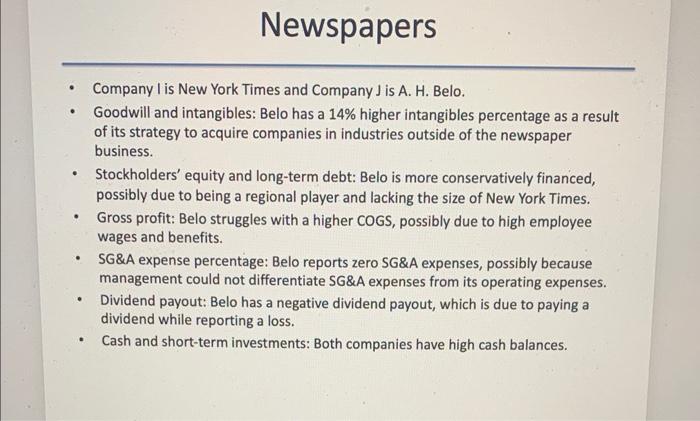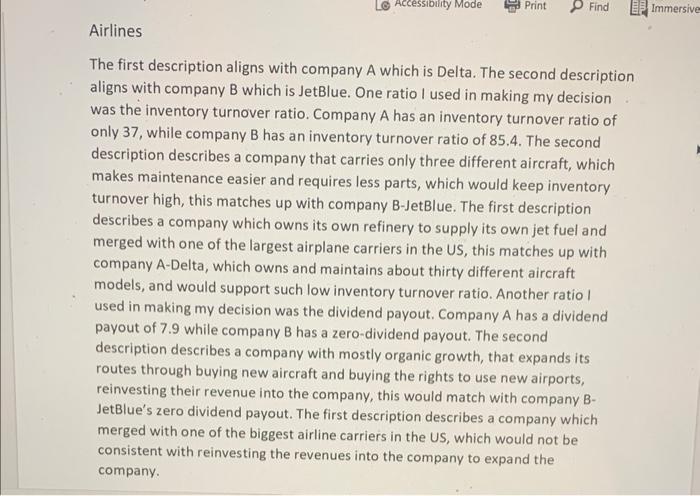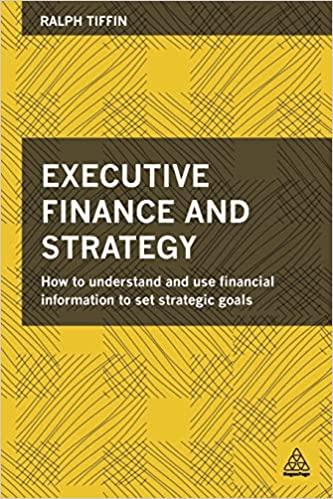Answered step by step
Verified Expert Solution
Question
1 Approved Answer
the topic is newspaper for this one! just pick a company related to that topic and this photo is an example On this assignment. you
the topic is newspaper for this one! 



just pick a company related to that topic and this photo is an example 
On this assignment. you are to state and explain 2 ratios per industry that you used to identify the respective companies in the industry. You may use one ratio for multiple industries, provided it is applicable to distinguish between the compaies in the industries. - Company I is New York Times and Company J is A. H. Belo. - Goodwill and intangibles: Belo has a 14\% higher intangibles percentage as a result of its strategy to acquire companies in industries outside of the newspaper business. - Stockholders' equity and long-term debt: Belo is more conservatively financed, possibly due to being a regional player and lacking the size of New York Times. - Gross profit: Belo struggles with a higher COGS, possibly due to high employee wages and benefits. - SG\&A expense percentage: Belo reports zero SG\&A expenses, possibly because management could not differentiate SG\&A expenses from its operating expenses. - Dividend payout: Belo has a negative dividend payout, which is due to paying a dividend while reporting a loss. - Cash and short-term investments: Both companies have high cash balances. The first description aligns with company A which is Delta. The second description aligns with company B which is JetBlue. One ratio I used in making my decision was the inventory turnover ratio. Company A has an inventory turnover ratio of only 37 , while company B has an inventory turnover ratio of 85.4. The second description describes a company that carries only three different aircraft, which makes maintenance easier and requires less parts, which would keep inventory turnover high, this matches up with company B-JetBlue. The first description describes a company which owns its own refinery to supply its own jet fuel and merged with one of the largest airplane carriers in the US, this matches up with company A-Delta, which owns and maintains about thirty different aircraft models, and would support such low inventory turnover ratio. Another ratio I used in making my decision was the dividend payout. Company A has a dividend payout of 7.9 while company B has a zero-dividend payout. The second description describes a company with mostly organic growth, that expands its routes through buying new aircraft and buying the rights to use new airports, reinvesting their revenue into the company, this would match with company BJetBlue's zero dividend payout. The first description describes a company which merged with one of the biggest airline carriers in the US, which would not be consistent with reinvesting the revenues into the company to expand the company. On this assignment. you are to state and explain 2 ratios per industry that you used to identify the respective companies in the industry. You may use one ratio for multiple industries, provided it is applicable to distinguish between the compaies in the industries. - Company I is New York Times and Company J is A. H. Belo. - Goodwill and intangibles: Belo has a 14\% higher intangibles percentage as a result of its strategy to acquire companies in industries outside of the newspaper business. - Stockholders' equity and long-term debt: Belo is more conservatively financed, possibly due to being a regional player and lacking the size of New York Times. - Gross profit: Belo struggles with a higher COGS, possibly due to high employee wages and benefits. - SG\&A expense percentage: Belo reports zero SG\&A expenses, possibly because management could not differentiate SG\&A expenses from its operating expenses. - Dividend payout: Belo has a negative dividend payout, which is due to paying a dividend while reporting a loss. - Cash and short-term investments: Both companies have high cash balances. The first description aligns with company A which is Delta. The second description aligns with company B which is JetBlue. One ratio I used in making my decision was the inventory turnover ratio. Company A has an inventory turnover ratio of only 37 , while company B has an inventory turnover ratio of 85.4. The second description describes a company that carries only three different aircraft, which makes maintenance easier and requires less parts, which would keep inventory turnover high, this matches up with company B-JetBlue. The first description describes a company which owns its own refinery to supply its own jet fuel and merged with one of the largest airplane carriers in the US, this matches up with company A-Delta, which owns and maintains about thirty different aircraft models, and would support such low inventory turnover ratio. Another ratio I used in making my decision was the dividend payout. Company A has a dividend payout of 7.9 while company B has a zero-dividend payout. The second description describes a company with mostly organic growth, that expands its routes through buying new aircraft and buying the rights to use new airports, reinvesting their revenue into the company, this would match with company BJetBlue's zero dividend payout. The first description describes a company which merged with one of the biggest airline carriers in the US, which would not be consistent with reinvesting the revenues into the company to expand the company 
Step by Step Solution
There are 3 Steps involved in it
Step: 1

Get Instant Access to Expert-Tailored Solutions
See step-by-step solutions with expert insights and AI powered tools for academic success
Step: 2

Step: 3

Ace Your Homework with AI
Get the answers you need in no time with our AI-driven, step-by-step assistance
Get Started


